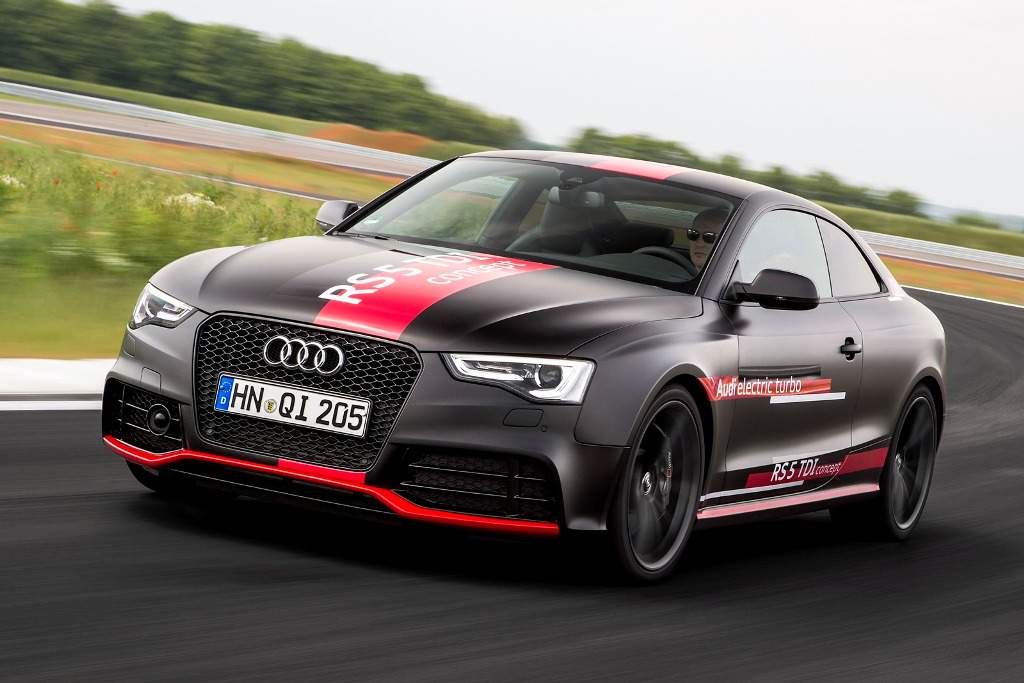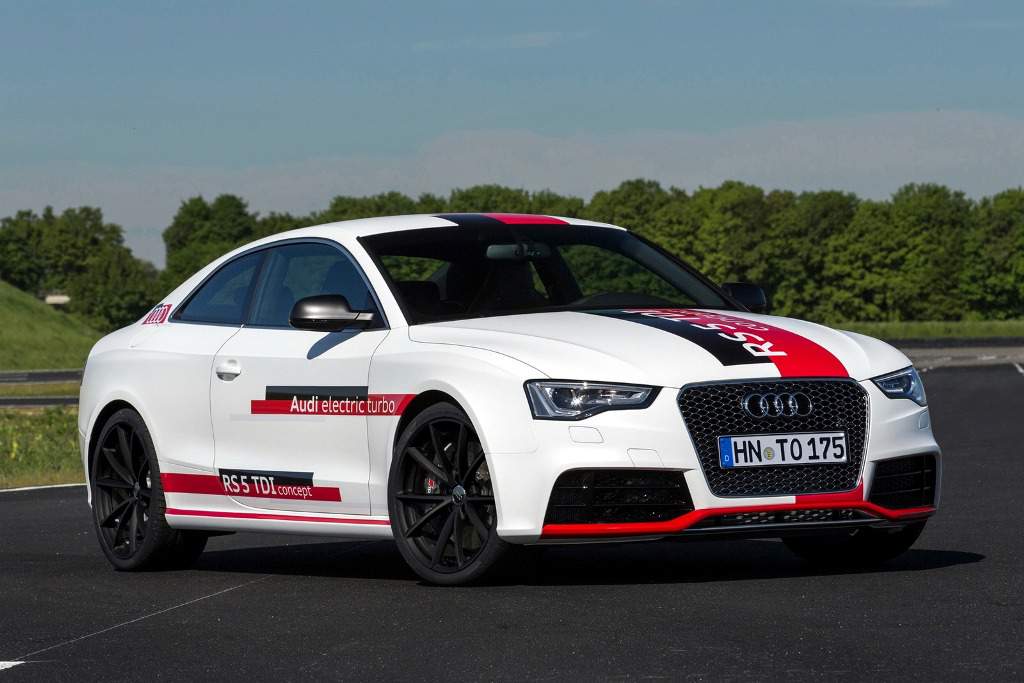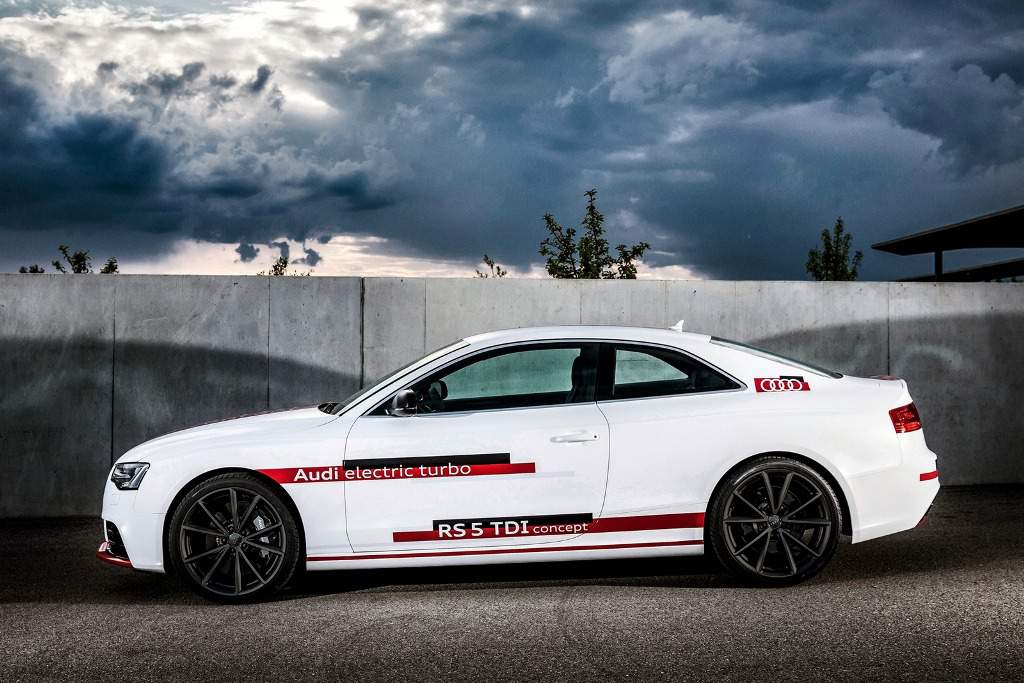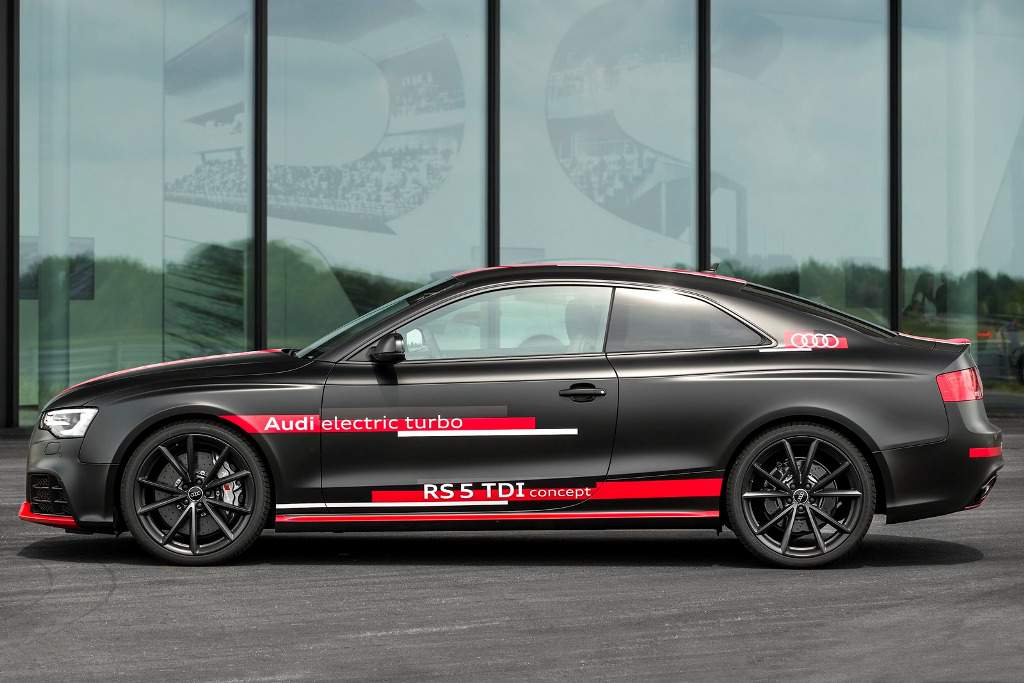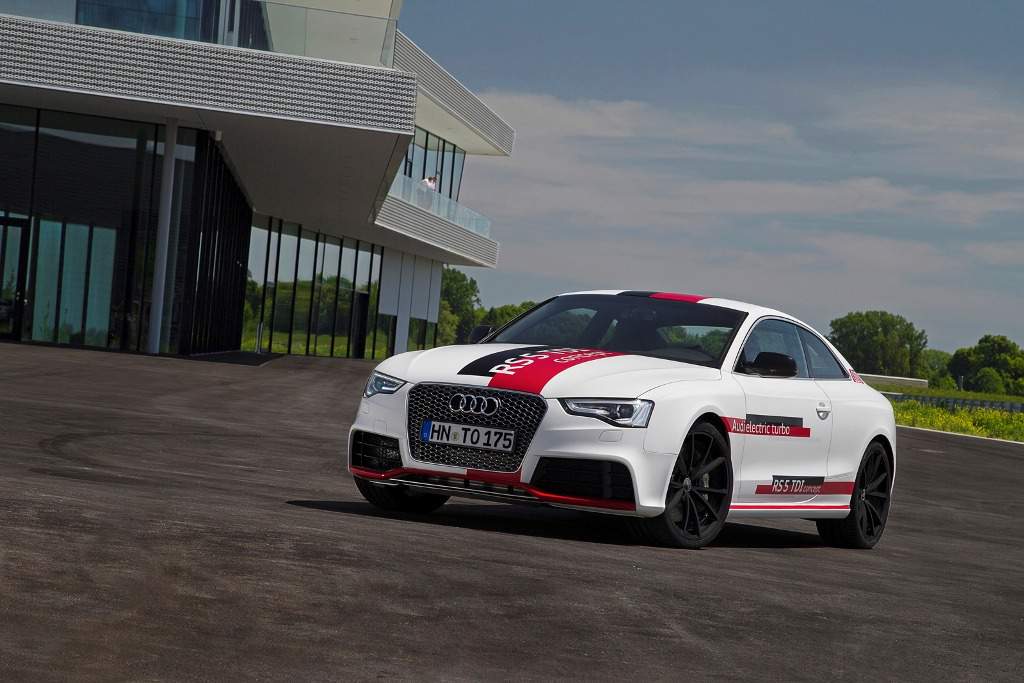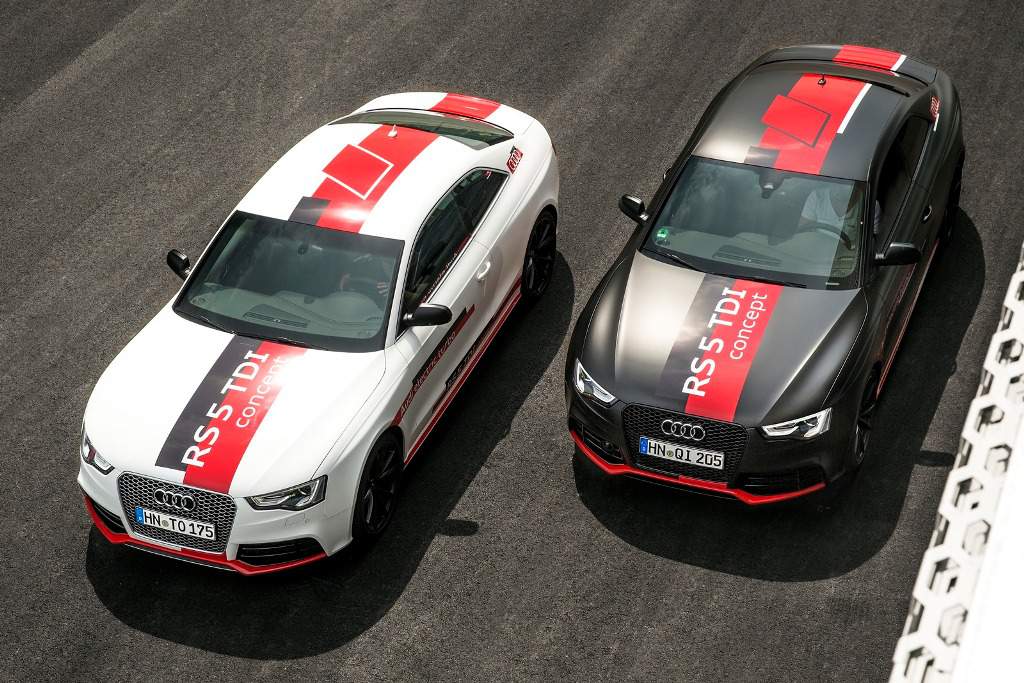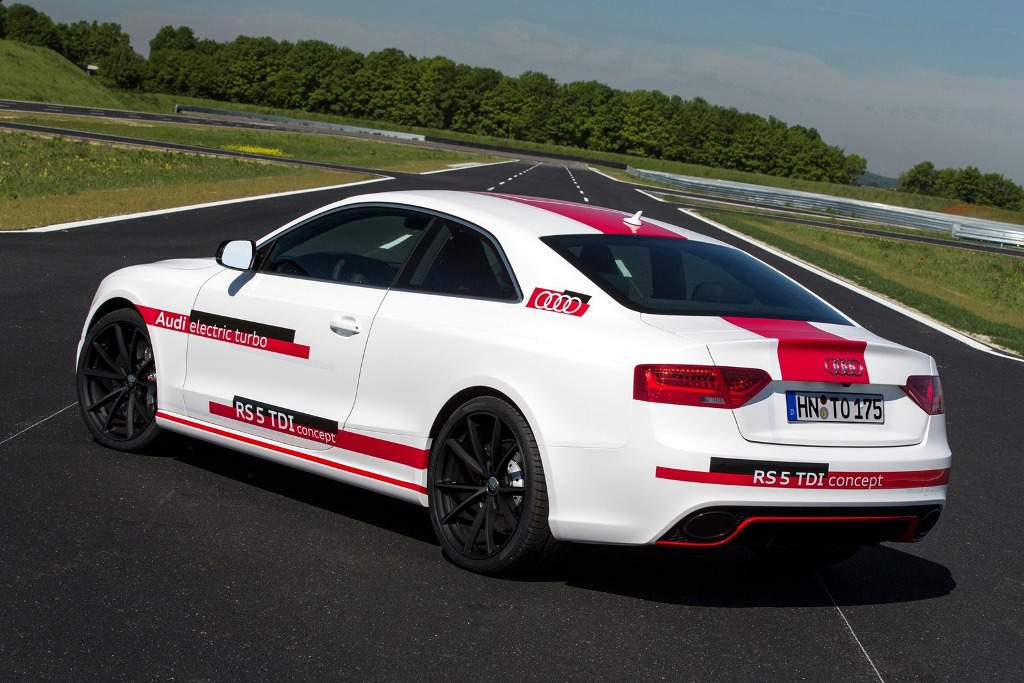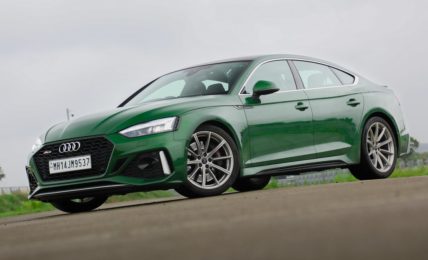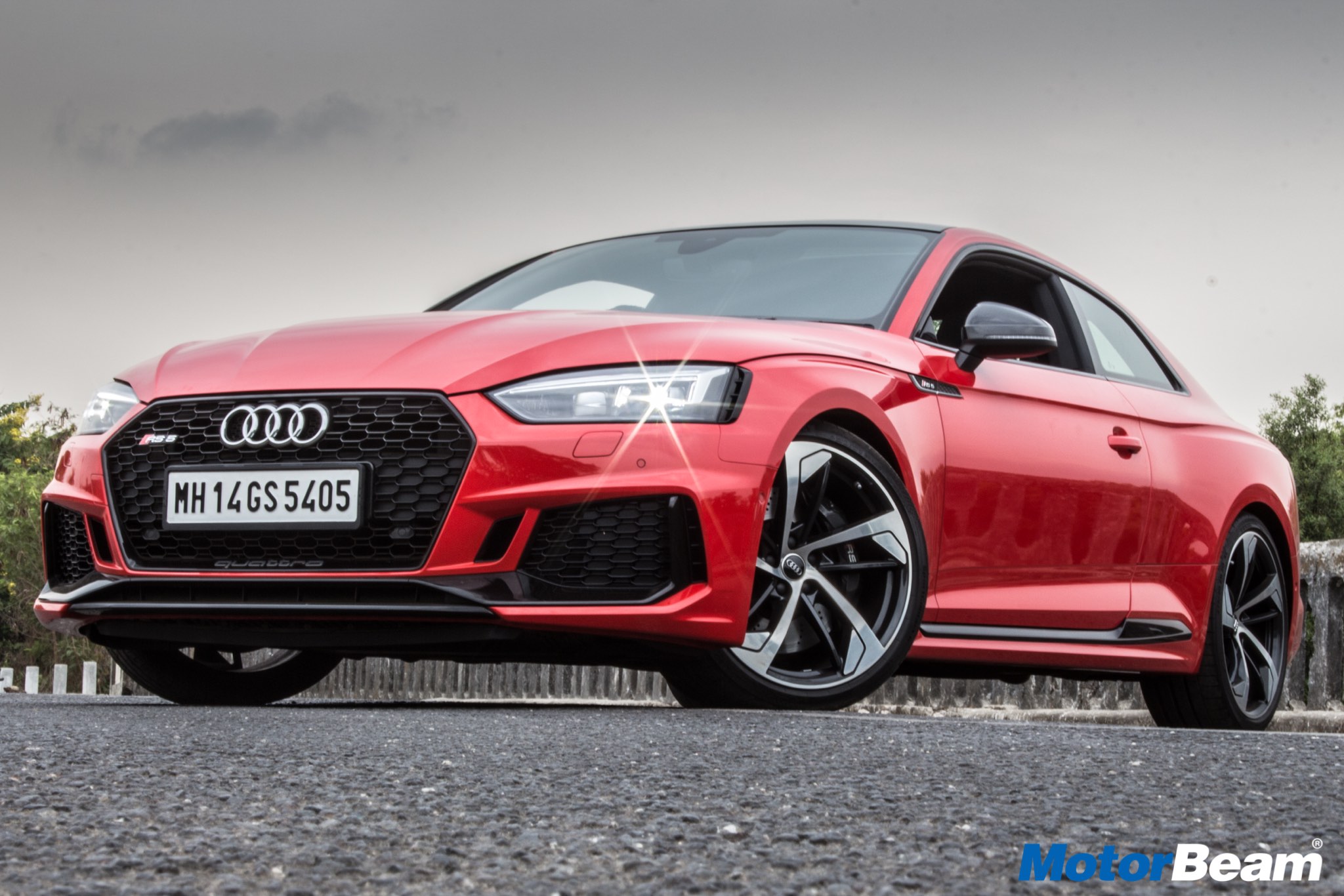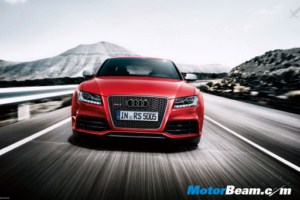Performance cars have not really been associated with diesel powertrains. While naturally aspirated petrol powered vehicles have been favoured by the masses on sports cars, the diesel motors were subjected to being load haulers for having high levels of torque. However, with the inclination towards diesel these days; the trend seems to be changing as more mainstream manufacturers are opting for diesel performance. Audi’s 24 Hours Le Mans race car was also powered by a diesel engine that won it several accolades last year.
Now, Audi’s RS division has put together a new technology study to build a diesel powered sports car in the form of the RS5 TDI Concept. The technology study is powered by a 3.0-litre V6 TDI bi-turbo engine that is boosted by an electrically driven turbocharger and belts out 385 PS of power at 5000 RPM and a staggering 750 Nm of torque at 1250 RPM. Audi states that the diesel engine is now sportier and more efficient, courtesy of the new electric turbocharger developed by the RS division. The electric turbocharger not only improves the sprint times and pulling power, but also the efficiency of the car.
The Audi RS5 TDI Concept does 0-100 km/hr in just 4 seconds, which is 0.6 seconds quicker than the petrol powered coupe version and hits the 200 km/hr mark in less than 16 seconds. The top speed of the Concept is rated at 280 km/hr, while the average fuel economy of the car is 44.4 mpg (18.87 km/l). The CO2 emission is also under check on the diesel powered concept and the car emits only 140 g/km. The electric turbocharger also provides other advantages that add to the spirited performance of the Concept.
The electric turbocharger provides for considerable power when starting. An electric motor replaces the turbine wheel and accelerates the compressor wheel to over 70,000 RPM in a few hundredths of a second. The exhaust turbochargers also provide as much as 2.4 bar of relative boost pressure. To transmit the drive energy for the electric turbocharger, the RS5 TDI concept uses a separate 48-volt electrical system that is connected to the conventional 12-volt electrical system via a DC converter. The energy is stored in a compact lithium-ion battery, with the advantage of 48-volt electrical systems being that they enable the transmission of larger amounts of energy.
After BMW’s M division, Audi’s RS is the second German automaker to have ventured into diesel performance. This only leaves Mercedes’ Affalterbach based AMG division that does not have a diesel powered vehicle as yet. A diesel powered G63 AMG or a GL63 AMG are certainly names that we could associate with diesel power under the hood. While Audi declined to confirm when the engine will go into production, earlier reports do suggest that the 3.0-litre V6 TDI could be offered on the next generation Q7 slated for a 2016 launch.


